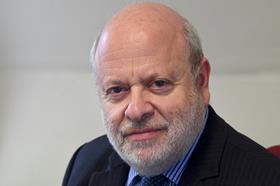When I repeat these words from a message which resulted in a jail sentence, we all know about whom and what we are talking: ‘Mass deportation now, set fire to all the f****** hotels full of the b******* for all I care... If that makes me racist, so be it.’

When I repeat the following words, we also know about whom and what we are talking: ‘The government has used ECHR against the people of Epping. Illegal migrants have more rights than the British people under Starmer.’
I repeat them to make a comment, and to ask a question.
My comment is that it is very curious how our current political discourse is drenched in the language of human rights. The second quote above is very obviously about human rights, and the first quote has similarly become a battle of rights, because its author claimed she was a political prisoner and her supporters insisted on her right to freedom of speech.
If I were to give my views one way or the other, I would soon be drowned out by people on one or other side arguing (to put it politely) about basic rights.
The same would be true if I were to have started this article with quotes around the trans debate and the rights of women.
And what if I had started with quotes from the deafening argument about the human rights of Palestinians and of Israelis?
We as lawyers should welcome that the bedrock of our business is so much in the public domain. But I cannot stifle the feeling that the more the rights are fought over, the less meaning the words ‘human rights’ have. It has become a catch-all phrase covering so many disputed circumstances that it may soon lose its power to speak effectively and to engage with grave issues.
Read more by Goldsmith
I do not pretend that debates like this are unique to our age. In previous eras, when, say, the rights of women were being fought over – before the First World War during the height of suffragette action, or in the 1960s when another wave of feminism broke – there was the same loud dispute about the meaning of human rights.
This was even more the case when religious liberty was a matter of life or death in previous centuries, as our country switched from Catholic to Protestant, backwards and forwards. Was there a right to pursue your beliefs without the interference of the state? People were executed, and the English themselves were refugees (yes, fancy that) to other countries to escape persecution.
Yet, despite this history, and possibly because of the amplification provided by our 24/7 omnipresent technology, I feel that our current discourse has coarsened the notion of human rights, to the point where I fear for its future meaning.
I said at the outset that I also had a question. It is this: do we as lawyers have a duty to support particular interpretations of human rights and to promote them in current circumstances?
On the one hand, that is nonsense. The courts themselves disagree over the meaning of particular rights, so how can there be one interpretation? Human rights often clash, and it is difficult to say which should prevail over the others.
The same question was asked during a recent religious programme on the radio with regard to immigration. Do all Christians have a duty to support particular interpretations of human rights? The bishop hesitated in his answer, before saying no, they had a duty only to consider the issues seriously.
On the other hand, we know that there are universal rights. Article 1 of the UN’s Universal Declaration of Human Rights states:
‘All human beings are born free and equal in dignity and rights. They are endowed with reason and conscience and should act towards one another in a spirit of brotherhood.’
The universal declaration is a non-binding document voted through by states. But do the two quotations with which I started comply with Article 1 and the wording to act towards others in a spirit of brotherhood (I will add sisterhood, or maybe better still, humanity)? I repeat that I am not focusing alone on the immigration debate; the same would apply to the other disputes I raised around trans rights and Palestinian and Israeli rights.
I have stopped at Article 1, but I could have quoted from Articles 2 (everyone has the right to all these rights) and 3 (everyone has the right to security of person) and further articles.
Do we as lawyers have a duty to point out universal articles, or as importantly regional or domestic articles from conventions or laws binding on governments to guarantee our protection? Is there a common understanding, at least among lawyers, as to what they mean? Indeed, should there be a common understanding, or was that always a fiction, exploded since we receive our information now from a thousand different sources, and so arrive at our interpretation from differing political priorities?
I fear that the more we yell, the more a common understanding disappears, and the more the phrase ‘human rights’ loses any useful meaning.
Jonathan Goldsmith is Law Society Council member for EU & International, chair of the Law Society’s Policy & Regulatory Affairs Committee and a member of its board. All views expressed are personal and are not made in his capacity as a Law Society Council member, nor on behalf of the Law Society































5 Readers' comments